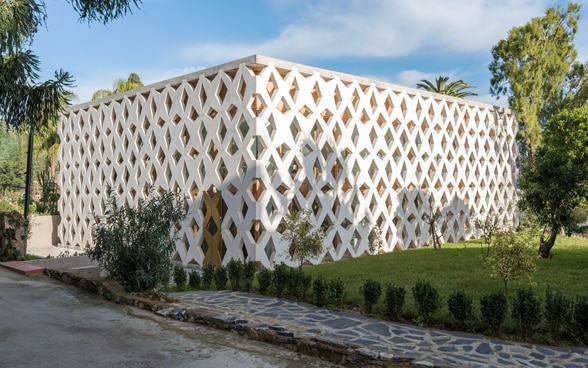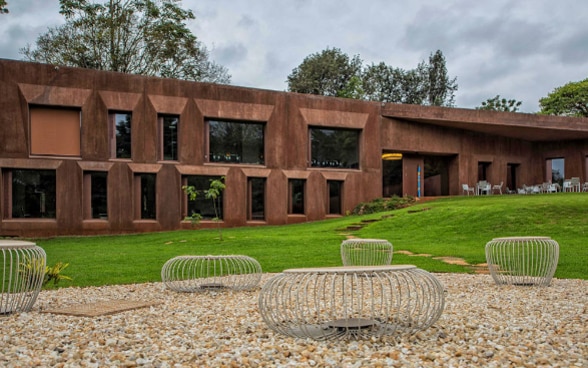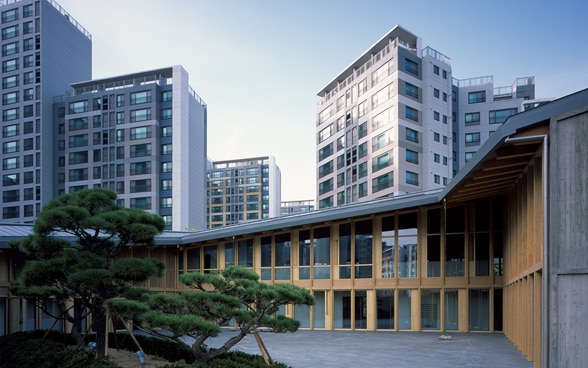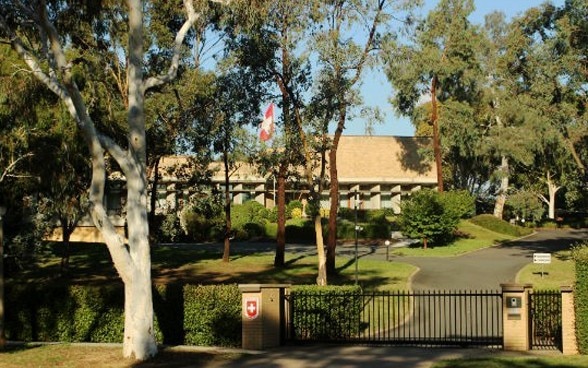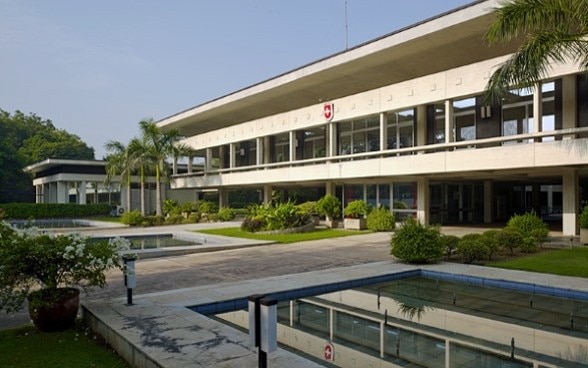Sustainable embassies: Switzerland leads by example
In line with its Sustainable Development Strategy, Switzerland builds and manages its properties around the world according to modern sustainability standards. The most recent example is the Swiss embassy in Zimbabwe's capital Harare. A new solar system supplies the embassy with energy and enables it to operate without one of the emergency power generators that are ubiquitous in Harare.
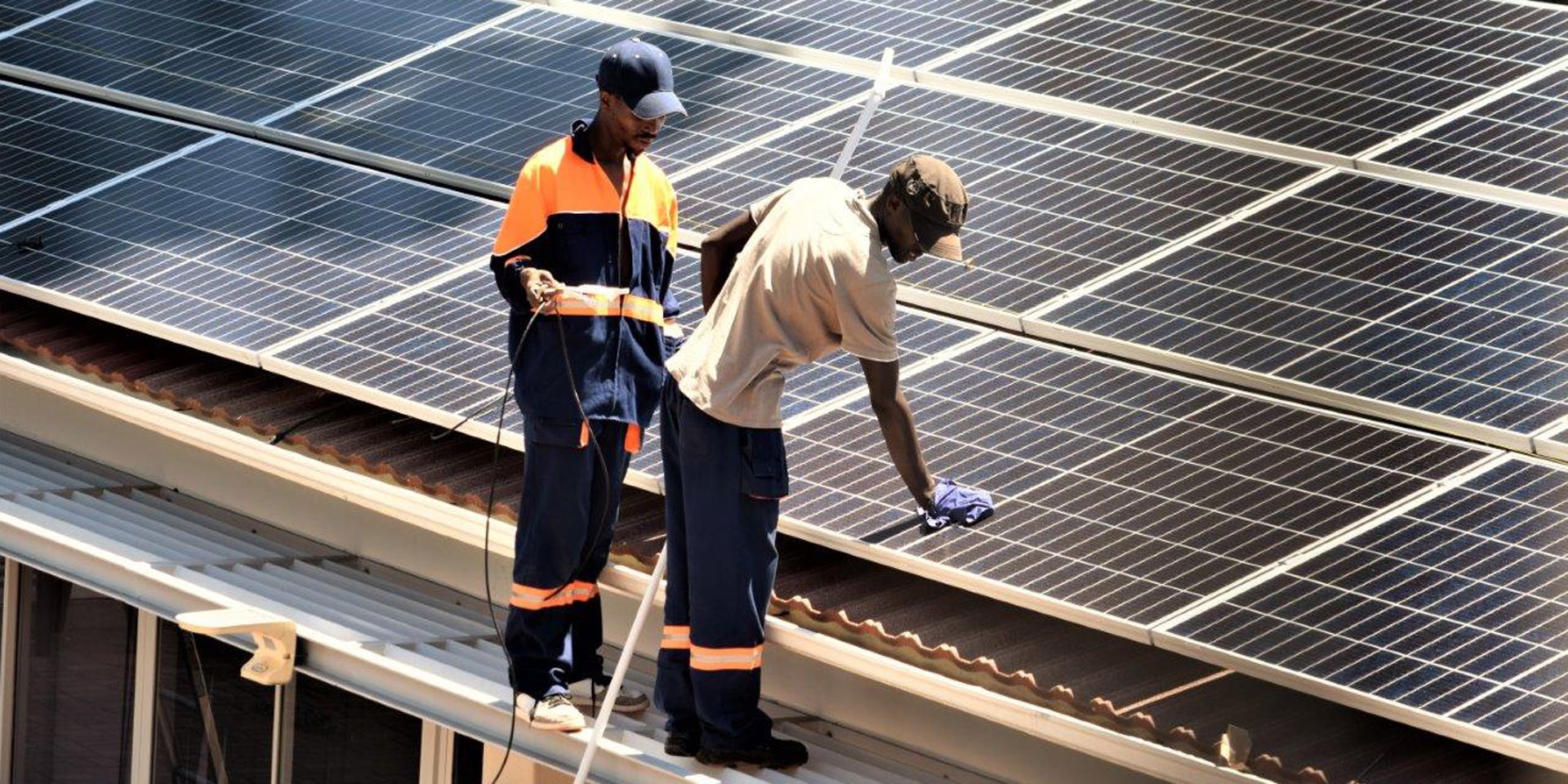
Solar panels on the rooftops of the Swiss embassy in Harare – installed and put into operation by local service providers. © FDFA
It's 7am in Zimbabwe's capital Harare. As happens with frequency at this time of day, the state power utility imposes a blackout over the city to prevent the entire power grid from overloading. In order to continue to have electricity during the blackout, building owners throughout the city – including embassies from all over the world – turn on private diesel generators. The Swiss embassy is an exception: its electrical appliances are working and the lights are on, but there is no noise from rattling diesel generators and no smell of exhaust fumes.
Not just for private use in the future
The embassy rooftop shimmers blue in the strong morning sun. Solar panels provide the Swiss embassy with the energy it needs during Harare's rolling blackouts. The system relies on lithium batteries to store excess energy produced during the day which can be used after sunset. Although the solar panels generate so much electricity that the Swiss embassy could potentially supply other buildings in the neighbourhood, Harare's electricity grid does not yet allow the feed-in of energy back into the grid from private electricity generation systems.
This is set to change in the near future, says Fortune Chasi, Zimbabwe's Minister of Energy and Power Development, at the official ceremony to inaugurate the Swiss embassy's solar power system. "Climate change requires us to increasingly look for alternative energy sources. That's why we are very happy about Switzerland's investment, which is in line with Zimbabwe's policy of transition to clean energy," adds Mr Chasi. Ambassador Niculin Jäger notes that "solar power is a key element in Switzerland's efforts to progressively transform its embassies into exemplary models of sustainable development".
A relatively stable climate and plenty of sunshine makes Zimbabwe ideally suited for the production of energy through solar technology. Private households and building owners in the region are therefore increasingly turning to solar energy, as it is relatively inexpensive and offers them independence from an electricity grid that is often unreliable. Just a few solar cells, for example, produce enough electricity to charge a smartphone, a device that is becoming increasingly indispensable.
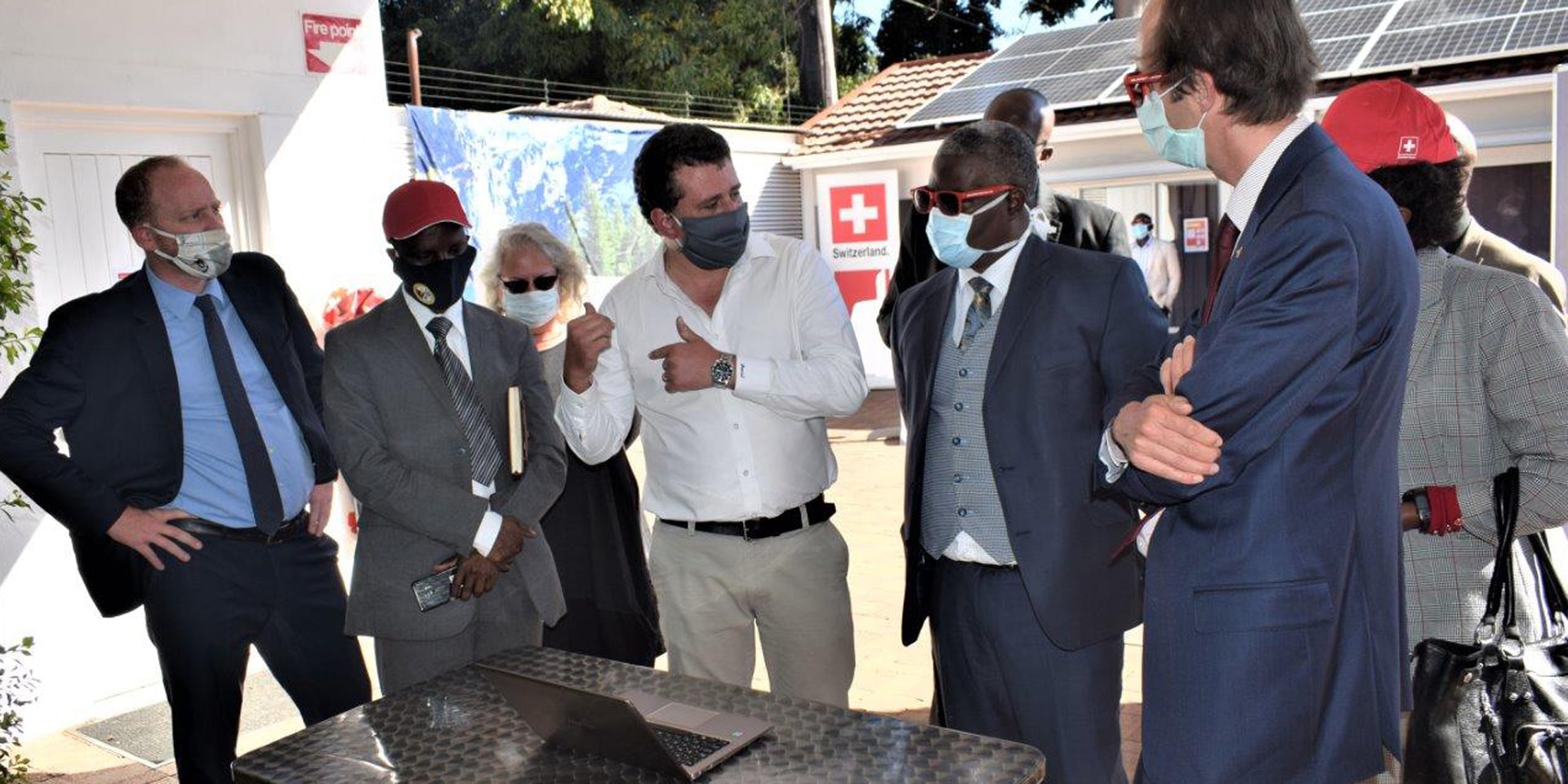
In line with Switzerland's Sustainable Development Strategy
The installation of a solar rooftop on the Swiss embassy in Zimbabwe is in keeping with the Sustainable Development Strategy which sets out the sustainability priorities Switzerland intends to focus on in the coming years. The 17 Sustainable Development Goals of the 2030 Agenda serve as a reference framework for the strategy.
Under the strategy, the Swiss government builds and manages Swiss embassies worldwide in accordance with sustainability standards. The Swiss representations abroad lead by example and showcase Switzerland's commitment to sustainability. The Swiss embassy in Harare is just one of many sustainable embassies. Throughout the world, Switzerland lives up to its social and environmental responsibilities and builds or designs buildings that reflect local customs and use regionally sourced materials in accordance with the latest construction standards.
Links
- Leading by example – reports from the embassies
- Sustainable Swiss embassies
- Sustainable Development Strategy 2016–19, Federal Office for Spatial Development (ARE)
- 2030 Agenda for Sustainable Development, Federal Department of Foreign Affairs (FDFA)
- Completed construction projects abroad, Federal Office for Buildings and Logistics (FOBL), de, fr, it

